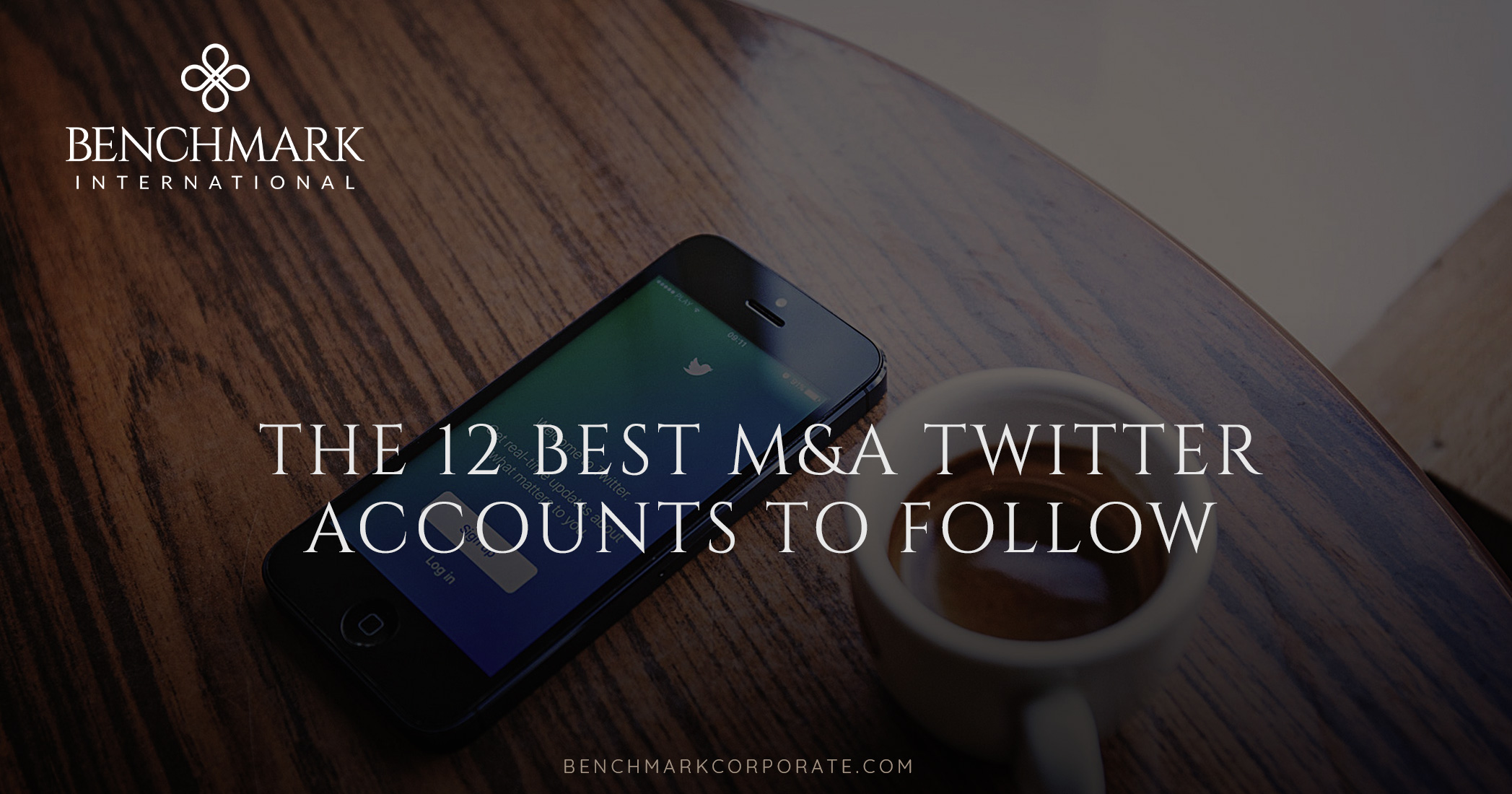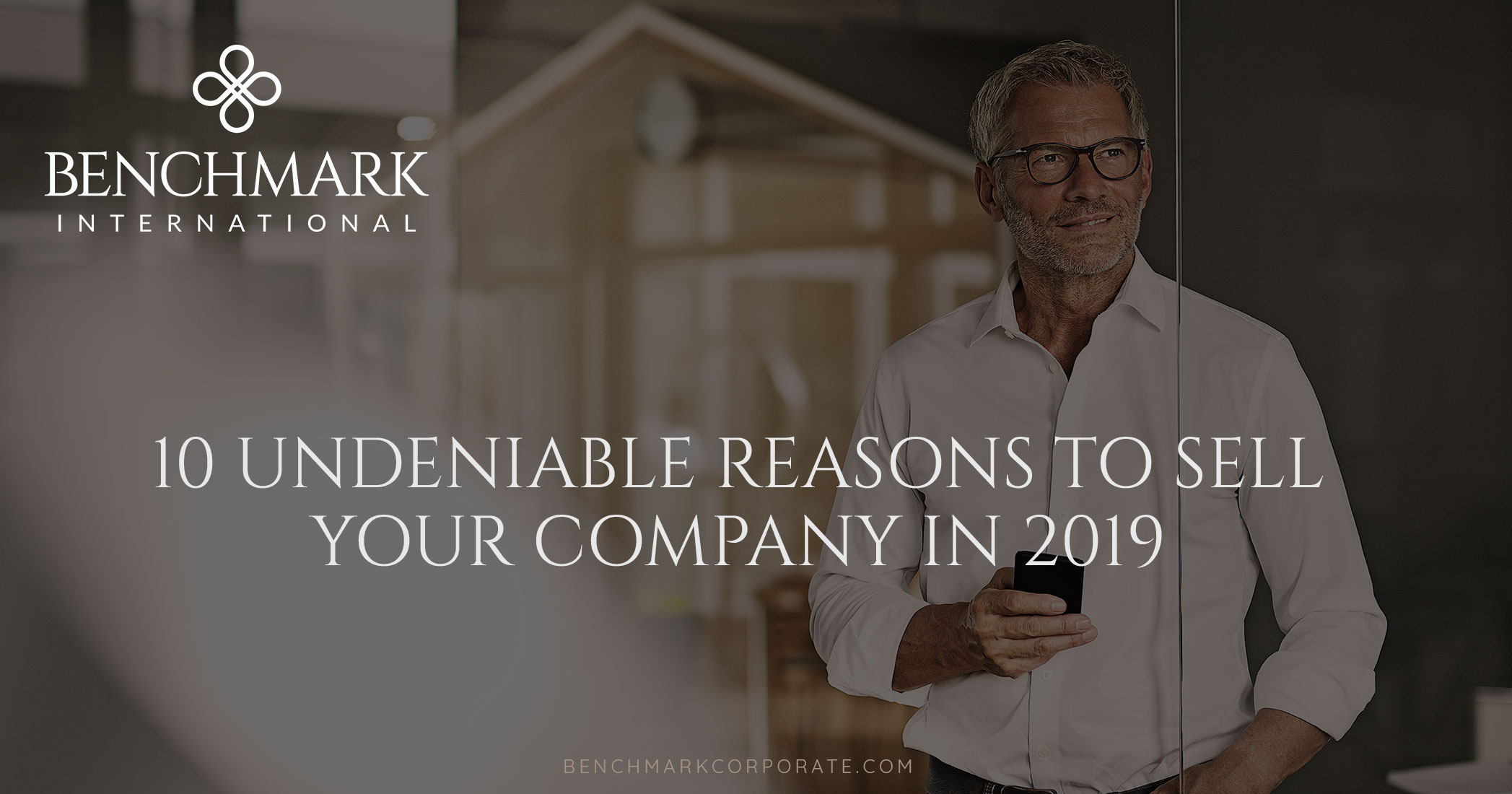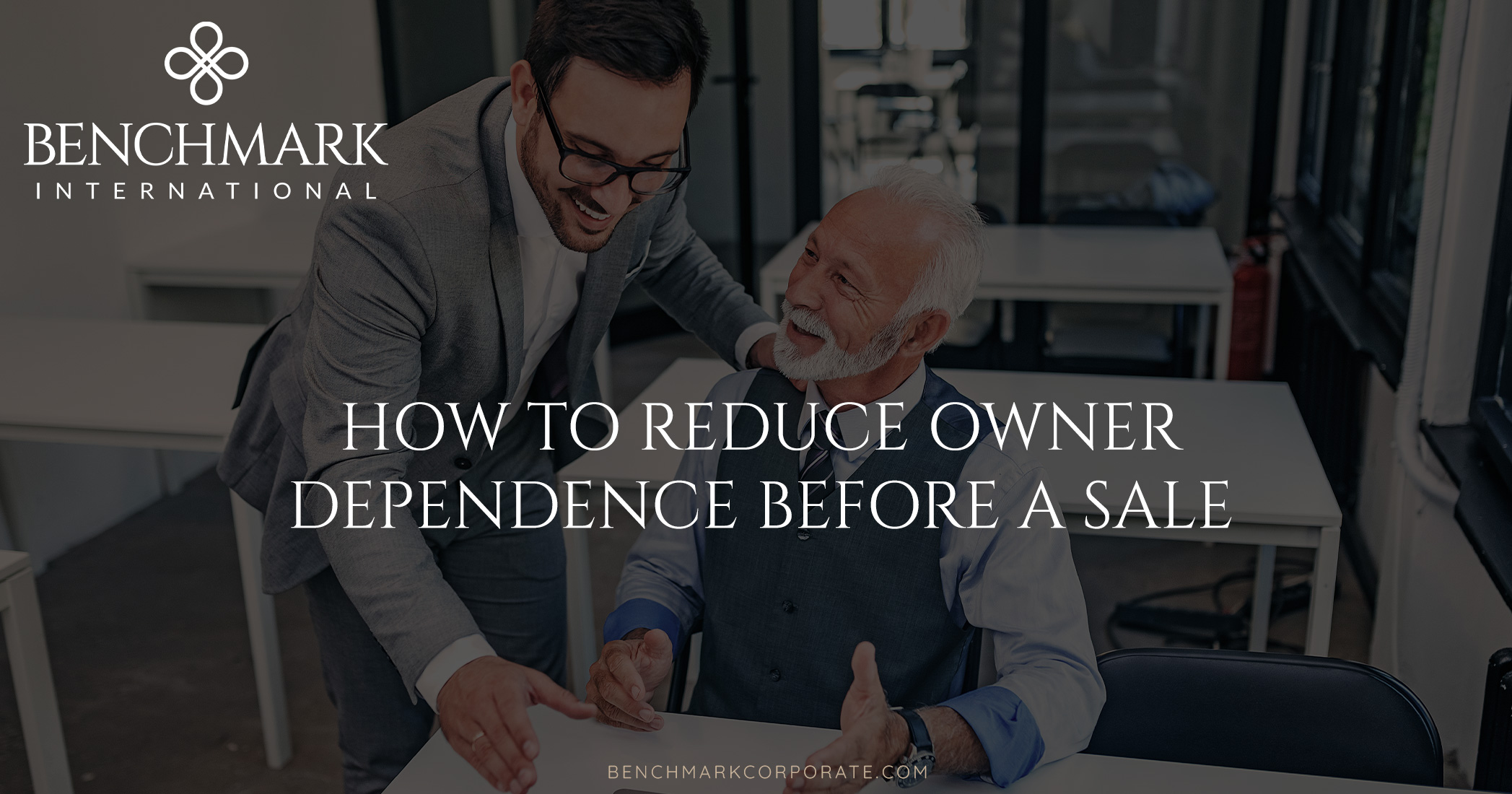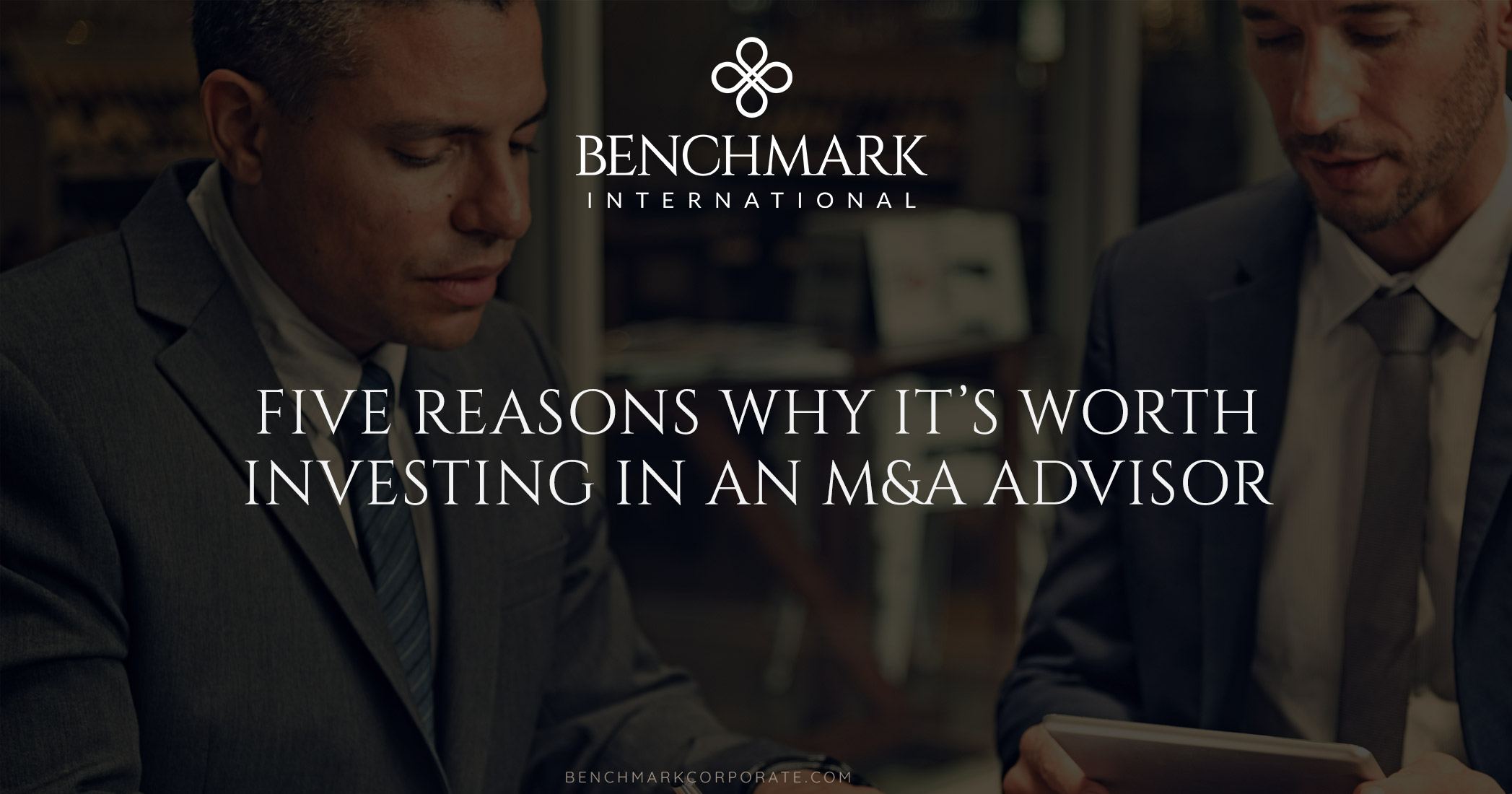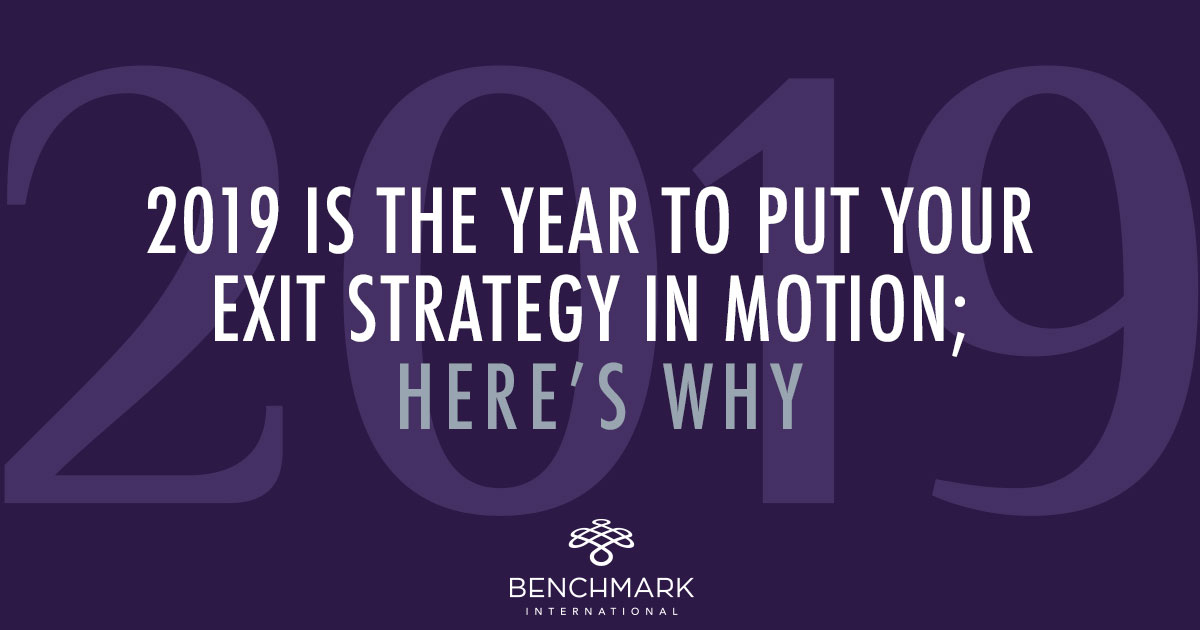So you’ve made the big decision – you’re going to sell your business. This is likely a stressful time for you as have probably spent a lot of time and resource building up the company and may be nervous about seeing it pass over to new hands. So, from here on in, you would like to minimise the amount of stress involved by avoiding any mistakes which can easily be averted. The following are common mistakes to avoid and how Benchmark International can help:
Only Pursuing the Largest Acquirer
Surely pursuing the largest acquirer is in your best interests as they will be able to afford a premium for the company?
While they may be able to pay a premium for the company, they may not necessarily do so. An acquirer is likely to pay a premium for your company because there are synergies in place such as similar markets, products or customers that could be combined, but a large acquirer typically does not need to make the acquisition to enter these markets. An acquisitive party could also benefit from economies of scale and, therefore, will pay more for the target, but a large acquirer is unlikely to benefit from this. Even if a large acquirer is willing to pay a premium, they may absorb operations into their own company, which can cause complications for the handover, particularly if you are loyal to existing staff.
How Benchmark International Can Help: Look at all aspects of the deal and how it can benefit your company. Benchmark International can assist with sourcing the best fit for your company.

Not Looking at the Bigger Picture
You’ve just received an offer from a potential acquirer – on the surface of it, it looks good, surpassing your expectations. However, the structure of the deal as a whole needs to be considered, not just the total value. For example, the consideration could be deferred, or contingent on future earnings, meaning you are not receiving all cash upon completion. It is also important that if you do decide on a structured deal, that these elements are protected, ensuring you receive the consideration.
How Benchmark International Can Help: Benchmark International will thoroughly analyse all offers received, negotiate earn-out protections and can assess any contingent targets to ensure that the seller is able to maximise the consideration received.
Not Creating Competitive Tension
It can certainly be a benefit to enter into the M&A process with potential acquirers in mind, perhaps one of these has even approached you at some point. However, even though it may be tempting to dive straight into a deal with an acquirer that wants you and complements your company perfectly, it is still vital to create competitive tension by generating interest from other potential acquirers. If the acquirer in mind can sense that they are the only one with an offer on the table and that you are anxious to sell to them, they could take advantage of this with a low offer.
How Benchmark International Can Help: Benchmark International will employ an approach where all potential acquirers are approached and exhausted before accepting any offers.
Using an M&A Sector Specialist
This may seem like an odd ‘mistake’ to make – why wouldn’t you want to use an M&A specialist operating specifically in your sector, surely you don’t want a generalist?
The reasoning behind this is that a general M&A firm will be able to think outside the box and target a large pool of acquirers, not limiting itself to those just in your sector.
How Benchmark International Can Help: Benchmark International has a vast and growing number of contacts giving you the best chances of receiving multiple offers, as well as significant experience across a broad number of sectors, leveraging this to identify the areas where the greatest synergies can be exploited.
Leaving it Too Long
To obtain the best price and right fit for your company, it is crucial to enter the market at the right time. It is important to strike a balance between seeking to sell when the company is on a growth curve, but also not missing the window of opportunity in the market cycle. Equally, it is important not to sell when you become desperate (e.g. you are looking at retiring soon) as acquirers could become aware of this and lower their offer accordingly.
How Benchmark International Can Help: Look at selling earlier than anticipated, not when you want an imminent exit. Benchmark International can best advise on when the right time is
to sell.
Neglecting the Day-to-Day Running of the Business
M&A transactions can be time consuming, but it is important not to let it get in the way of running the business. If an acquirer is interested in the business because profits are increasing, or a new product is due to be released to the market, for example, and this does not come into fruition because you have taken your eye off the ball, then this could lead a buyer to renegotiate, or call the whole deal off.
How Benchmark International Can Help: The pressure of selling your business can be alleviated by Benchmark International as it will handle negotiations, leaving you to focus on running your company.
Not Negotiating Effectively at Critical Stages
Offers may go back and forth between yourself and the potential acquirer and at this point you are in a good position to negotiate. It is not until the Letter of Intent (LoI) is signed that the advantage swings to the buyer. Although the LoI is not typically legally binding it does usually stipulate a period where the seller cannot pursue further leads in the market (an exclusivity period), so competitive tension is lost. It is important, therefore, that you are completely happy with the terms (which can include such things as price, length of the exclusivity period etc.) before the LoI is signed to avoid either having to back out of a deal that could have been lucrative or being tied to a lengthy exclusivity period.
How Benchmark International Can Help: In all stages of negotiating, Benchmark International will do this on your behalf with your best interests in mind.
Author:
Lee Ritchie
Senior Director
Benchmark International
T: +44 (0) 1865 410 050
E: Ritchie@benchmarkcorporate.com
READ MORE >>
 Benchmark International
Benchmark International  Benchmark International
Benchmark International 
